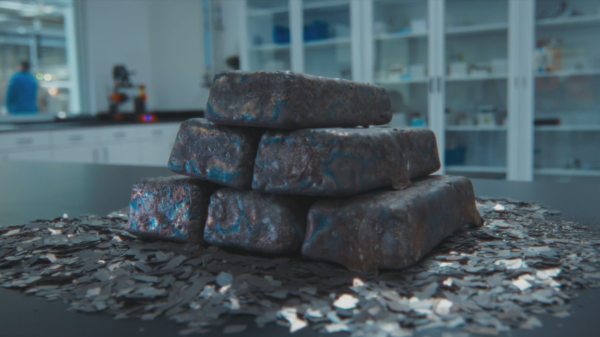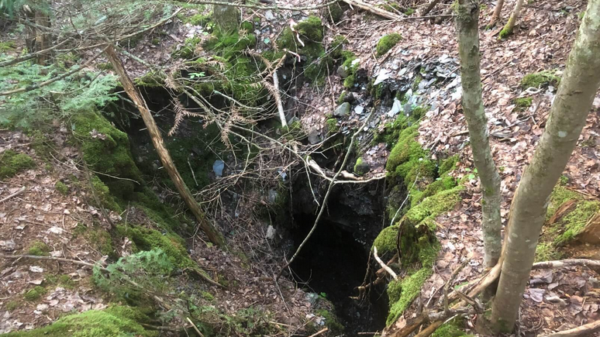The United States is investing US$3.5 billion to enhance its domestic battery production capabilities while reducing reliance on “foreign entities of concern” like China for necessary materials.
On Wednesday, the Biden-Harris administration and U.S. Department of Energy (DOE) announced the funding, which will come from the Bipartisan Infrastructure Law implemented by President Joe Biden two years ago.
The DOE says this funding will prioritize new battery technologies that are not lithium-based in addition to those that are. Companies and organizations seeking a portion of the funding must submit concept papers by Jan. 9 next year and complete applications by Mar. 14.
The funds will be administered by the department’s Office of Manufacturing and Energy Supply Chains with a particular focus on trying to create high-paying unionized jobs in the manufacturing sector. They will also be used to develop American manufacturing facilities that will process critical minerals needed for batteries and produce components needed for their construction.
“Positioning the United States front and centre to meet the growing demand for advanced batteries is how we boost our global competitiveness, maintain and create good-paying jobs, and strengthen our clean energy economy,” said Jennifer Granholm, U.S. Secretary of Energy.
Read more: Lithium South Development technical report shows 40% increase in lithium recovery
Read more: Lithium South Development first production well installed at Hombre Muerto lithium project
DOE expects demand for lithium batteries to increase 10-fold by 2030
The Department of Energy expects the demand for lithium batteries to increase immensely by 2030. The department estimates that approximately 22 million more electric vehicles will be sold in 2030 than this year throughout the world.

Graph via the U.S. DOE’s National Blueprint for Lithium Batteries. Source: Bloomberg NEF
Similarly, a report released by the French market researcher ReportLinker earlier this year estimated that the value of the global market for lithium would rise immensely and be worth approximately US$22.6 billion by the end of the decade. It is expected to ascend at a significant compound annual growth rate of 15.7 per cent in the coming years. Other market reports have similar predictions.
Columbia University’s professor from the Center on Global Energy Policy, Tom Moerenhout, said production of critical minerals matching the demand for EV batteries will be immensely challenging. He added that new mines usually take up to 16 years to enter the commercial production phase.
He also said that the potential for sodium-ion batteries as an alternative option is quite promising and that they are affordable and safe.
Earlier this week, the Colorado-based company Forge Nano announced the creation of Forge Battery. It will produce high-powered lithium-ion battery cells at a large new facility in North Carolina. They will be used for specialty electric vehicle markets, aerospace and defense applications.
Based on a report last year from the Argonne National Laboratory, the DOE says Michigan, Georgia and Kentucky will be the dominant manufacturers of electric vehicle batteries in the U.S. by 2030.
Several publicly traded companies in the U.S. play significant roles in the growing battery market.
General Motors (NYSE: GM) and Exxon Mobil Corporation (NYSE: XOM) are notable, the latter oil and gas giant recently ventured into lithium exploration in Arkansas. Given the importance of lithium, key players in the EV battery sector include Albemarle Corporation (NYSE: ALB), the American Battery Technology Company (NASDAQ: ABAT) and Full Circle Lithium Corp. (TSX-V: FCLI).
Century Lithium (TSX-V: LCE) and Electra Battery Materials (TSX-V: ELBM) are additional influences in the industry. Century owns and operates the major Clayton Valley lithium project in Nevada and Electra runs the Iron Creek copper-cobalt operation in Idaho.
The increasing utilization of wind and solar power in states like Texas is also accelerating the demand for batteries as larger clean energy operations require greater storage capacity.
rowan@mugglehead.com














